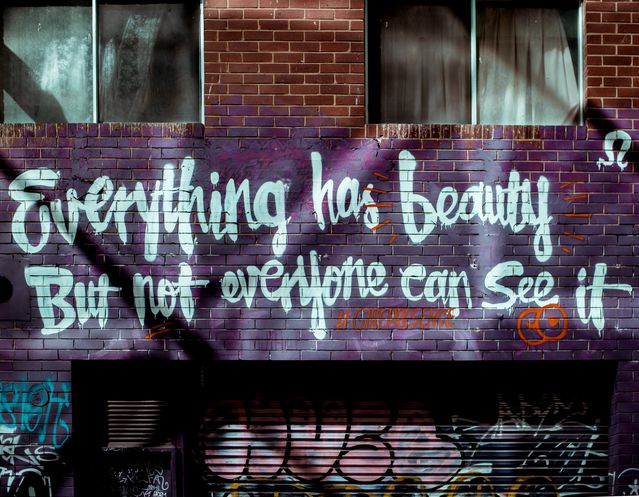Beauty
Resilience, Leadership, and Beauty
Beauty exists throughout life—including the unexpected goal of good decisions.
Posted August 3, 2018

For each of us, there are moments when we make important choices. Life presents a challenge, and a choice has to be made. Resilient leaders thrive at such moments. One of those moments comes when the choice appears to pit work and family against one another.
People often ask me how I balance my work and private life properly. I get asked this question a lot, especially from women (and more recently from men) who desperately want to assure they are doing the best they can for their family as they pursue a career. To a thinking person, this is a challenging and uncomfortable place to make a decision.
To respond, I talk about my own decision-making when family was pitted against career, things were enormously uncomfortable, and where the options were equally uncomfortable—at least in the short term. I felt as though I was giving up my entire world as I made that choice. Either option produced pain. I’m sure you have experienced such a situation.
In the end, the only decision I could make was the one that felt ‘right’ to me. This meant the decision was based on what I value. I’m not talking about valuing family over work or work over family, but on deeper things such as integrity, honesty, human dignity—all in support of and in alignment with my purpose in life. The decision was not a popular one with others. It created immediate pain, and yet over time, the peace of making the right decision, consistent with my values and purpose, sustained me. I never felt pangs of guilt.
When I thought about this, I thought I had found something really new. Then I read Gustavo Razzetti’s blog called “Don’t Just Do the Right Thing, Act Beautifully.”
I was drawn by that word beauty. It turns out that beauty is one of the things I indeed value. Beauty describes something where all the parts work together to provide pleasure or satisfaction, even if the creative effort is painful at first. For example, I waited 10 years before purchasing a lamp for my living room just because what I saw either was beyond my price range or would clash with the intentions of the design of my home—in other words, ugly. But Razzetti says, “Making wise choices is hard and requires lifelong learning and practice. It isn’t just about obeying laws, but about becoming the best version of yourself. As Socrates said: be dedicated to the perfection of your soul.” Beauty is about the soul—however you choose to define "soul."

Recently I was hurt deeply by someone and decided instead of taking revenge to offer help to that person. Revenge would have been easy but counter to my values of human dignity. In other words, revenge would have been ugly. It might have given me a moment of grim satisfaction knowing it might hurt the other person, but it most definitely would have hurt my soul. But let me get back to Razzetti. If a decision feels wrong, it is wrong. By wrong he means that it feels as though it is destroying something deep inside you. If you chose it, you will carry that discomfort with you on-going.
Resilience, our ability to find a path to beauty from a shock or disruption, is a skill we can learn to employ between the moment of shock and our decision of what to do about it. It’s rarely a comfortable place and requires action to return yourself back to normal. Here are two practices I have found valuable in helping identify a helpful path:
- A practice that I have written about is to always decide the most important thing to do for the day. It’s usually slightly uncomfortable to select that most important thing, but it’s great practice in making choices in discomfort. As you do so, you build confidence in yourself to make decisions in discomfort. Then, when the disturbance or disruption is great, you know you can choose beauty.
- Knowing your values is a task you can begin by writing down stories from your life—yesterday, last year, or last decade. Stories have a way of bringing your life experiences into the present so that you can explore your motivations. As you do that, you discover your values, and eventually, I believe you will also find your purpose. Writing a personal story every day is one of the four daily practices that build resilience. They do so by helping you build a clear understanding of who you are, one of the building blocks of resilience.
Remember Razzetti’s words, “Making wise choices is hard and requires lifelong learning and practice.” These two practices of choosing the most important action for the day and writing a personal story is part of the lifelong learning that will build resilience and lead you to making wiser choices.
It’s easy to go through life when things are comfortable, but resilience is enhanced when things are uncomfortable. Next time you are pressed to make a choice, and the place is anything but pleasant, look for the choice that will bring you beauty.
References
Gustavo Razzetti, Don't Just Do the Right Thing, Act Beautifully. His blog at https://blog.liberationist.org/the-perfection-of-the-soul-dont-just-do-the-right-thing-5db2890e6ece


